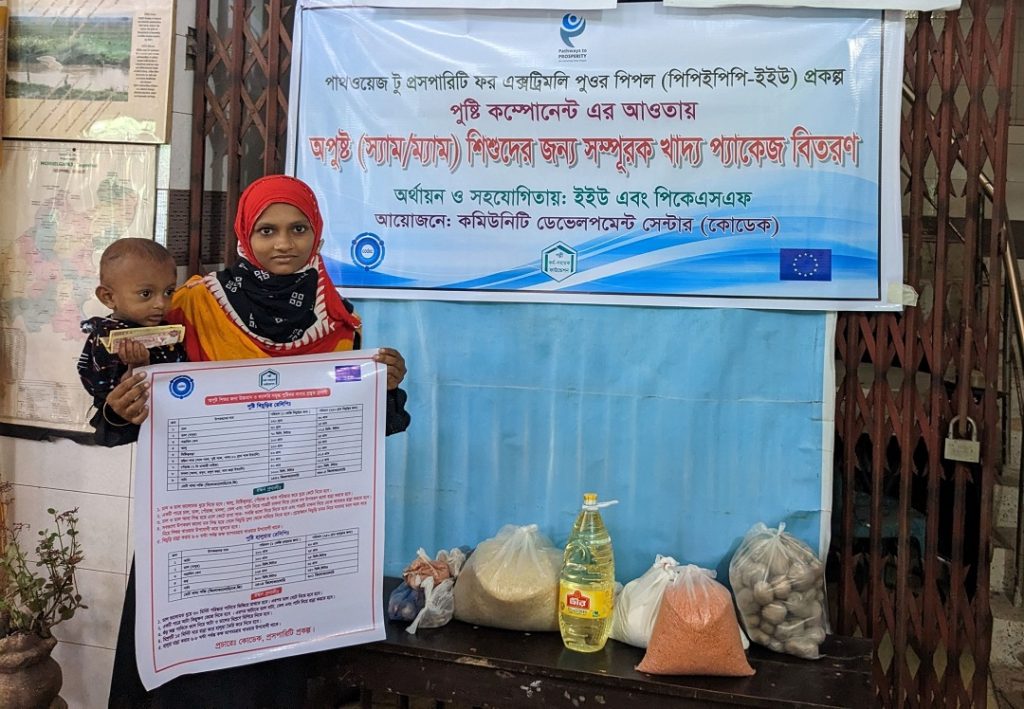Abu Bakkar Shikari, a 19-month-old child, was first diagnosed with malnutrition in November 2023 during a regular home visit by a PPEPP-EU’s nutrition staff. He is the grandchild of Rasheda Begum, a PPEPP-EU member from Bagerhat district’s Baroikhali union.
Shikari was detected as a MAM (Moderate Acute Malnutrition) child with a MUAC score 12, below the average measurement (above 12.5) for a similar age. At the time, he was underweight, seven kilograms, and lower in height, 78 centimetres.
Field staff immediately informed Shikari’s mother and family members about the consequences of malnutrition and guided them in his recovery. They learned about supplementary food items, their cooking method, and the routine of feeding the food to Shikari.
However, with a single breadwinner, Rasheda’s family lives in dire poverty and struggles to afford adequate food for all. So, they could not feed Shikari the supplementary meal required to ensure his nutrition, and his growth was not up to the mark.
As the situation worsened, the PPEPP-EU’s field staff soon arranged a special food package for the child. Shikari’s family received a high-calorie nutritious food package (Pushti Khichuri and Pushti Halua) from the project, delivered only to malnourished children.
Three months later, Shikari weighs 10.5 kg, is 82 centimetres in height, and has a MUAC of 12.7, courtesy of the regular feeding of food packages and growth monitoring by the staff. His mother says, “Now he is a normal child and has recovered from malnutrition and frequent illness.”
An important Direct Nutrition Initiative of PPEPP-EU is to refer children identified as SAM (Severe Acute Malnutrition) or MAM to the government’s health facilities to ensure better treatment. Nevertheless, children with no medical complications or identified as MAM can often be treated at home through necessary diet modification.
Therefore, the PPEPP-EU project has introduced an exclusive initiative to serve these children a high-calorie nutritious food package worth 2500 Taka. We provide this food package- equal to the therapeutic food supplied in the government hospitals- to only a selected group of children to impact them at home.
Ensuring this nutritious meal helps reduce the long-term adverse effects of malnutrition through developing the malnourished children, identified as SAM, MAM, stunted or wasted.
